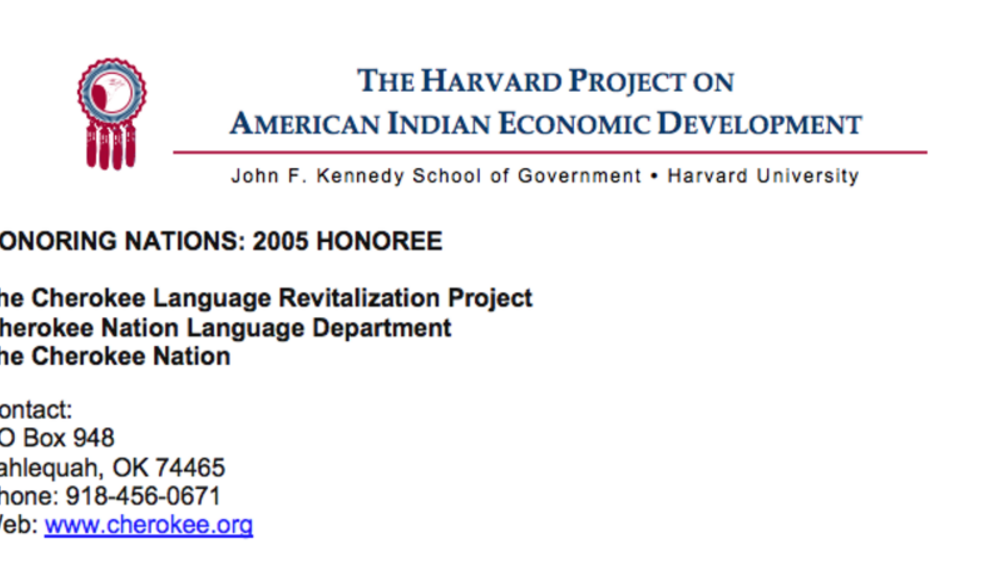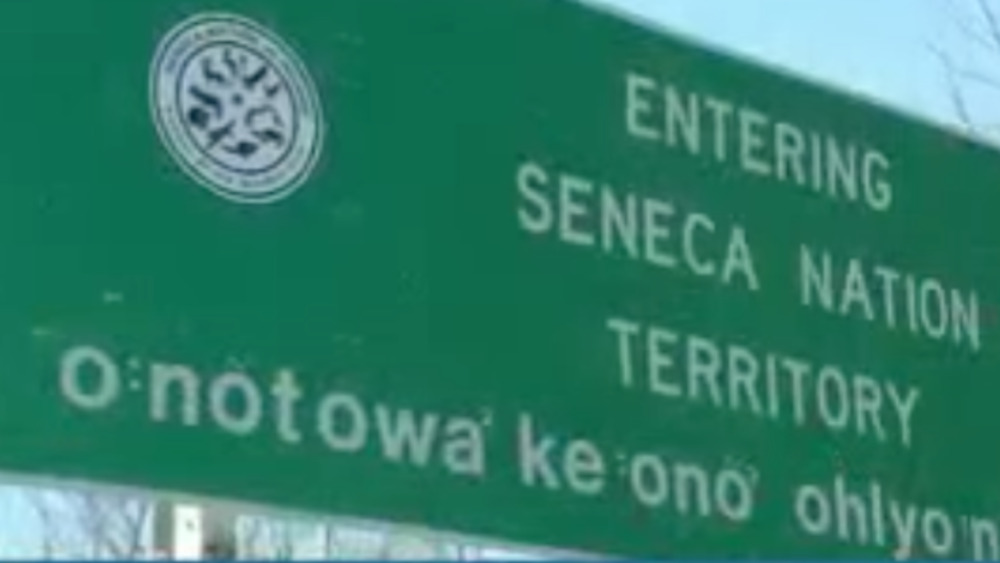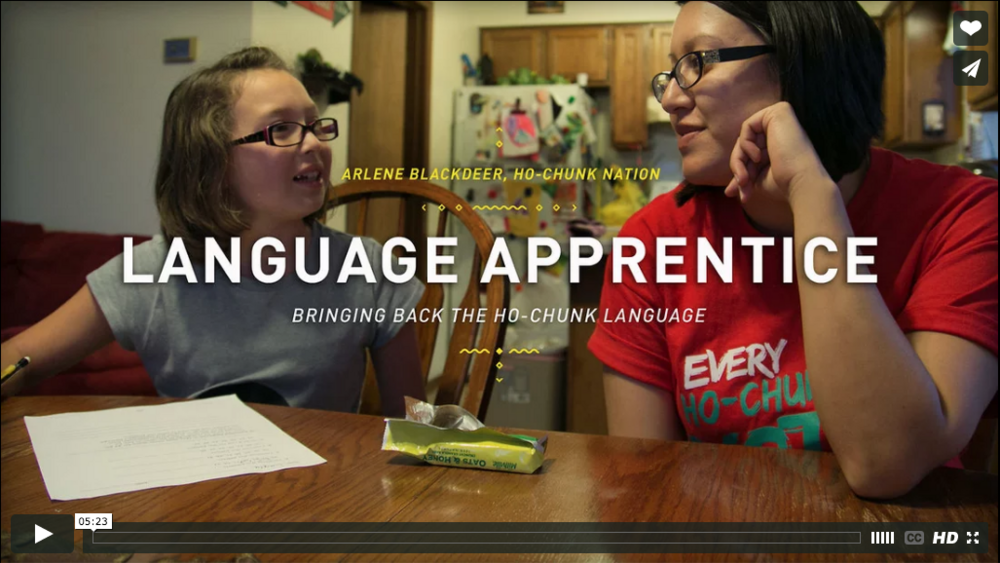Dusty Delso presents an overview of the Cherokee Language Revitalization Project to the Honoring Nations Board of Governors in conjunction with the 2005 Honoring Nations Awards.
Additional Information
Delso, Dusty. "Cherokee Language Revitalization Project." Honoring Nations Awards event. Harvard Project on American Indian Economic Development, John F. Kennedy School of Government, Harvard University. Tulsa, Oklahoma. November 1, 2005. Presentation.
Transcript
Dusty Delso:
"Thank you very much. It's great to be with you today. I'm here representing the Cherokee Nation. This is half of our immersion classroom. The other half is at the Cherokee Language Bowl Competition so we split up today. So the other half, some of them will be there tonight so you may get to meet them tonight. We'd like to have a little reading right now if we could."
Cherokee language student:
[Cherokee language]
Dusty Delso:
"Come on out guys. Can you come out a little bit? What we'd like to do now is a couple of our teachers will serve as interpreters to you and if you would, we'd like to demonstrate that they know how to use their language. This is more than just memorization. We would like you to ask questions to the interpreters where we cannot hear them and then they will ask our students in Cherokee, they will then respond in [Cherokee language] English and then they will answer in Cherokee and the teachers will tell you what they said, if that would be okay. Are you ready?"
Cherokee language instructor:
[Cherokee language]
Cherokee language student:
"What color is your dress?"
Cherokee language instructor:
[Cherokee language]
Dusty Delso:
"We apologize. We have a very strict, strict adherence to no English in the classroom and they will not speak English unless forced. And that's the way we want it, right parents? We didn't know how well they would respond to the lights and all the glitz. This is a lot of glitz for us but thank you very much. We're very proud of them."
Amy Besaw:
"Any questions from the board?"
David Gipp:
"Could you go over the numbers of children being served and how this compares to your beginning efforts, I know it's probably a beginning effort, but I know you've got a large citizenry enrollment for the tribe and can you give us some comparatives of what you're doing here and what the numbers are and the challenges you face in doing the cultural and language restoration here?"
Dusty Delso:
"Yes, sir. Our numbers are over 250,000. We currently have 38 students in our Tahlequah Language Center. We have about 12 at Lost City I believe. The good news is we had trouble finding teachers this fall but we opened the teacher accreditation program where teachers are accredited by Oklahoma and we currently have over 45 students in that program. So we hope within two years to graduate teachers to fill positions for additional classrooms."
David Gipp:
"Those are your adult learners in the 45?"
Dusty Delso:
"Yes, they will be state accredited teachers. They will have a degree in education and it will also be in Cherokee education so they will be fluent speakers."
David Gipp:
"There's a bachelor's in Cherokee, is that correct?"
Dusty Delso:
"Yes, sir. We're the first tribe to establish that with a state department which ours is Oklahoma."
David Gipp:
"Good, excellent."
JoAnn Chase:
"I also have an additional question and that is that I know that your tribal government has taken a very active role in supporting this program and certainly language and culture programs are important to tribes across the country but I noted with particular interest that the Cherokee Nation declared a state of emergency with respect to what they perceive would soon be a loss of the Cherokee language and I'm wondering if you could just talk a little bit more about what you think may be the importance of the government itself prioritizing this issue and giving tribal government support, it seems to me comprehensively, and if you think that's been an important factor in the success of your program."
Dusty Delso:
"It's critical. Our program right now, it costs about three million dollars a year to run the language programs that we have. These are based on a study that was performed about two years ago and it found that we skipped a generation; we had no fluent Cherokee speakers under the age of 40. So to bridge that gap, and what we know from language study is if you skip a generation you are doomed to extinction. So we are going in and using a best practices model. We discovered through a review of the literature that the Hawaiians have the best model in the world and this is patterned after the Hawaiian model and Pila Wilson who saved the Hawaiians. We start at the preschool level because that's when the language window opens and it's amazing. The parents fuss sometimes because they can't keep up with what the kids learn. And we know we're doing some good. We couldn't get it on film but when they argue and fight about crayons or on the playground it's in Cherokee and it is just...it's a hoot to see them do that. It's really fun but that was the basis of the study and if you do not put them in immersion settings, we have not found anything to be a substitute for that. Partial immersion does not work, community courses are limited in effectiveness and that total immersion setting is the best way to do it. We also work with the linguists at Kansas University, Dr. Yamamoto. The hole in our program right now is the assessment. Most languages do not have a good assessment, objective assessment tool and we are contracting with them to develop assessments for preschool all the way through adulthood and master and those should be available this spring so we're very happy."



